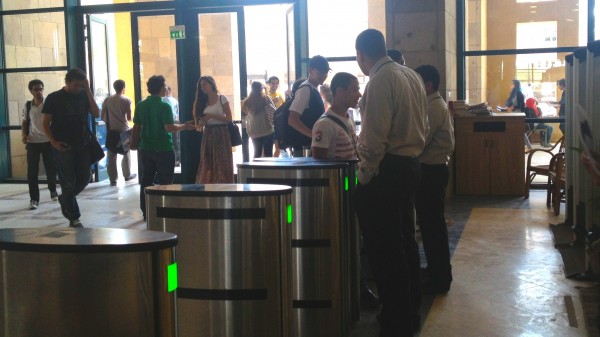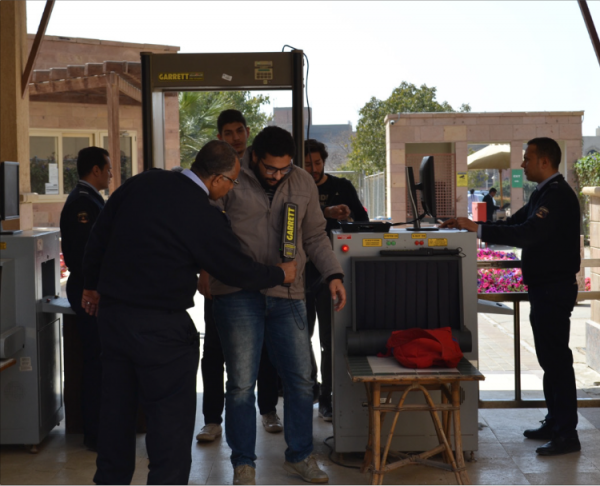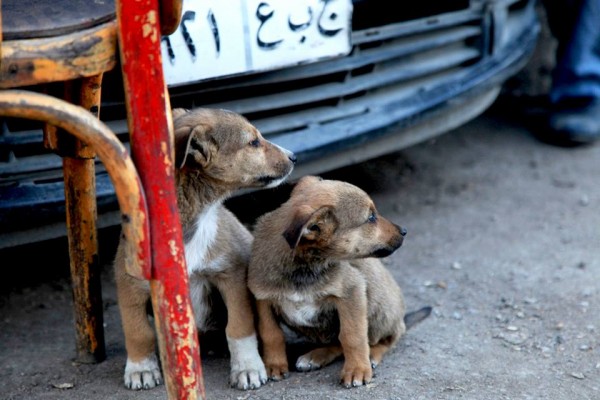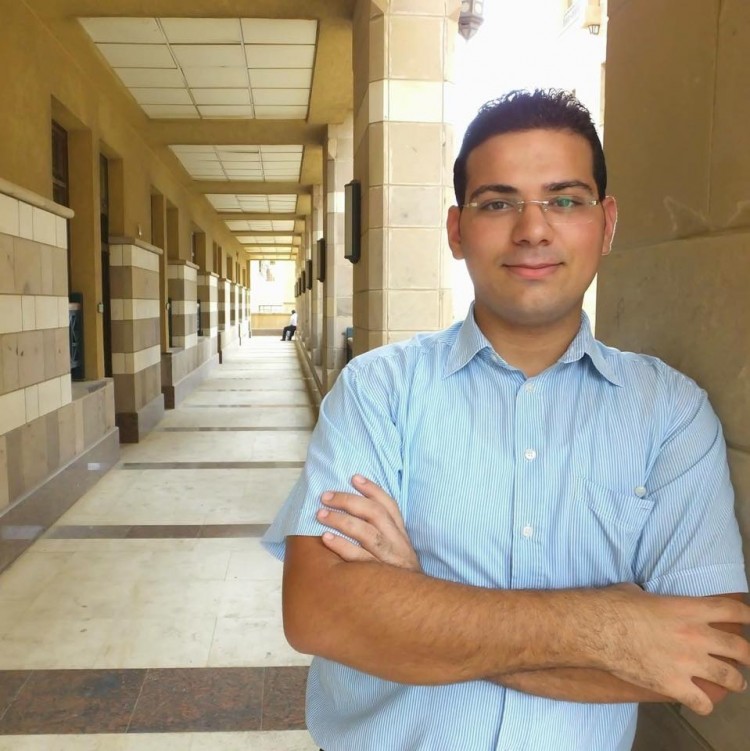Security seek student respect
A number of security personnel have told The Caravan that since the January 25 uprising, their jobs have become more challenging because they don’t get the respect from the student body that they used to receive.
When Mostafa Abdelfattah Ibrahim, a security guard who is responsible for the bus gate was asked about this change in attitude among students he said, “the revolution made some students more daring with us, thinking that this way they are asking for their rights”. He said he wished students understood that his primary responsibility is to keep them and the campus safe.
“As security guards we deal with students in two main branches. First, we must check the IDs and bags for every passing individual, second, we check on the parking area. This branch – the parking branch – is the hardest as students rarely observe the parking signs and the parking slots. Even if there are empty slots for them to park, they usually tend to throw their cars at any place,” added Ibrahim.
He said that he is aware of how many students suffer to find appropriate parking spots on a daily buses, with the greatest problem being overcrowding.
Ibrahim also alluded to the issue of students raising their voices or using inappropriate language with security personnel.
“Security are given clear orders of self-control at times like these, and if any of the security failed to handle the situation he must call for someone in a higher position to take over control,” he said.
But for the most part, he says there exists mutual respect between security staff and the students, and that most days pass without incident.
“There are always problems when it comes to the parking. Other than that, a majority of students are supportive,” he said.
Rabea Barsy, another security guard who stands at the library’s entrance, says “less than 1 per cent of the students refuse to put their ID not for anything but for being lazy. They sometimes refuse to get it out of their bags,”
He also adds that “another group of students think they should not show their ID because they are seniors and they have been students in the university for too long to be in need for their ID.”
Barsy also says that “very few students treat us with disrespect, the majority are very nice and polite, not to mention the sector that completely ignores us.”
When asking Barsy about a message that he wants the student to get, he said “This is our job. Students need to understand that we love them and pray for them to succeed in their lives, but they need to cooperate.”
However, Amr Shaheen, also a security guard who stands at the entrance of the library, wishes students would be more cooperative in displaying their IDs as they enter the university or the library.
“Some students make me feel like I am begging for their ID card. I need to secure the place that I am standing at,” he says.
He also added that he treats students with a very calm demeanor, even those who are rude to him “because they might end up insulting me so I make sure I’m calm when I’m asking for their IDs.”
“I have many students who consider me a friend, this creates a mutual atmosphere of respect and appreciation,” Shaheen adds.
Mohamed Ashraf, an economics senior, believes that after the “revolution” more students became aware of how hard the job of a security guard is. “These people work very hard and get little recognition in return, we must remember how during the revolution we were all one hand and that they kept us safe during very hard times,” he says.
Samuel Samy, a mechanical engineering student, laments the fact that some students mistreat security staff. “I think that the problem is that some students were not raised to treat others politely and not just security men,” he says.
Many campus clubs have recently tried to engage security and students in activities in order to build a feeling of belonging to the same university and build mutual respect.
Help Club, for example, has a committee called ‘Workers’ and it aims at serving the workers and security’s needs.




